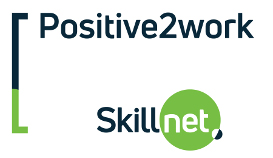Project Management Essentials
Course duration: Comprising 9 units, the course is delivered over a period of 2 days.
Course overview
Most project managers, co-ordinators and contributors are ‘technical’ experts or specialists who perform in an Operational Management environment following classical hierarchical or functional structures. Assignment to project management can be an intimidating experience due to the internal and external pressures to succeed and a lack of project system knowledge.
Project Management Essentials is designed to give delegates a pragmatic introduction to the concepts and principles of managing projects. Participants will gain practical experience in proven techniques and discover a range of valuable, applicable tools that will contribute to the successful delivery of their projects.
Aims and objectives
On completing this course delegates will:
- Understand project characteristics and the benefit of project stages and lifecycles
- Be able to identify and manage stakeholders
- Be familiar with project success factors
- Understand the importance of the Project Charter or Brief
- Describe project objectives and create a Project Scope Statement or Project Initiation Document
- Have learnt how to construct a Work or Product Breakdown Structure and understand it’s importance in developing the
- Project Plan
- Be able to construct a Gantt chart and calculate the Critical Path
- Know the Risk Management Processes and how to create and manage a Risk Log
- Understand the requirement for a Change Control system and consistent Performance Reporting
Project Management Methodology
Project Management Essentials is designed to provide sound management techniques and methodology and references the Project Management Institutes (PMI’s) Project Management Body Of Knowledge (PMBOK®) and the PRINCE2 central process model and components.
Integration with existing Management Systems
The course can be customised to incorporate existing organisation methodologies such as internal quality systems, GMP, TQM, strategic management, performance reporting, risk measures and matrices etc.
Who should attend
This course is aimed at delegates who are about to participate on a project team for the first time or – as project managers – assigned to deliver their inaugural project. It is also invaluable for delegates who are already project managers, contributors or participants but now need a structured approach to project work.
Course content
Unit 1: Project Management Foundation
1.1 Project Definitions
1.2 Understanding the Project Environment
1.3 Project Stakeholders
1.4 Lifecycle Management
1.5 Project Success Factors
Unit 2: Project Scope Management
2.1 Initiation
2.2 Scope Planning
2.3 Scope Definition
2.4 Scope Verification
2.5 Scope Change Control
Unit 3: Project Time Management
3.1 Activity Definition
3.2 Activity Sequencing
3.3 Activity Duration Estimating
3.4 Schedule Development
3.5 Schedule Control
3.6 Critical Path Method (CPM)
3.7 CPM Example
3.8 Programme Evaluation Review Technique (PERT)
Unit 4: Project Cost Management
4.1 Resource Planning
4.2 Cost Estimating
4.3 Cost Budgeting
4.4 Cost Control
Unit 5: Project Quality Management
5.1 Quality Planning
5.2 Quality Assurance
5.3 Quality Control
5.5 Seven Quality Control Tools
Unit 6: Project Risk Management
6.1 Risk Management Planning
6.2 Risk Identification
6.3 Qualitative Risk Analysis
6.4 Risk Response Planning
6.5 Risk Monitoring and Control
Unit 7: Integrated Change Control
Unit 8: Project Termination
8.1 Reasons for Project Termination
8.2 Project Close-Out Techniques
8.3 The Project File
8.4 The Lessons Learned Report
8.5 Post-Project Review
Unit 9: Templates
Certification
There is no certification for this programme.
